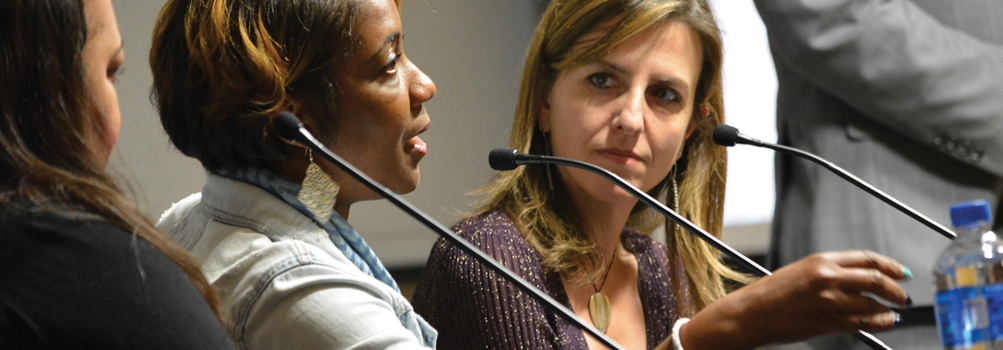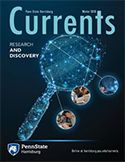Penn State Harrisburg Reads, the college’s common reading program for the campus community, kicked off its inaugural year in fall 2018 with the New York Times bestselling novel “The Immortal Life of Henrietta Lacks” by Rebecca Skloot.
The book tells the story of Henrietta Lacks, an African American woman who in 1951 became the source of the scientific discovery of HeLa cells – the world’s first “immortal cells.” These cancerous cells, which were taken from her body without her permission, became the source of numerous medical breakthroughs, including the development of the polio vaccine and cloning. Approximately 20 tons of HeLa cells have been grown in laboratories around the world and are involved in nearly 11,000 patents.
Penn State Harrisburg Reads “is designed to provide a shared experience among students who read the same book while also creating a campaign that fosters dialogue and engagement about the concepts introduced in the book for the campus at large,” explains Perdeta Bush, the program’s coordinator.
Skloot’s book discusses Lacks’ story and ties together many themes: morality and ethics; racism, classism, sexism; technology and globalization;
human suffering; scientific progress versus personal privacy; and immortality. The book explores the process of ethical scientific discovery, and what happens when human subjects aren’t protected.
“It is a book about … how that one person – even unbeknownst to her – made this huge contribution to the world,” Bush said. “Rebecca [Skloot] was in her freshman biology class when she heard about Henrietta Lacks and the HeLa cells. She said, ‘there’s got to be more to this story,’ and for ten years, she researched and was on the journey to write this book…you never know what you are going to hear in class or at an event that will spark an interest and define your career and who you are for the rest of your life.”
Dr. Felicia Brown-Haywood, director of the Division of Student Affairs and Engagement, emphasized that the program is a strategic initiative to build “purposeful partnerships, facilitating community and shared experiences through a myriad of learning methods.”
Extensive and diverse programming was built around the book, featuring events for the college community and the public. The college’s Office of Multicultural Recruitment and Community Affairs, for example, hosted a group of middle school students from the Harrisburg School District to participate in activities related to the book. The students received copies of the book, screened the HBO film about it, discussed its themes, and participated in a DNA extraction activity. Other events included movie screenings, guest speakers, book club discussions, research projects, contests, and more.
The program’s premier event featured an evening with author Rebecca Skloot and members of the Lacks family. Skloot told the story of the first time she contacted the Lacks family for information. “I was pretty clueless about journalism, about writing, and I had no idea any of this story had happened the way it did. I just knew that I needed to find out who she was, and when I called Deborah [Henrietta’s daughter] saying I want to write about your mother, she responded with, ‘No, you’re not.’”
This was the encounter that really piqued Skloot’s curiosity and motivated her to pursue researching the Lacks
family’s story. “It was in that sentence that I said, ‘Something happened to this family, and I have to know what that was,’” Skloot said.
Writing the book was an enduring process. “It was 11 years from start to finish. That first call was in 1999, and there were so many hurdles on the way,” Skloot said. She attributes her perseverance to Deborah Lacks, who taught her to follow the trail of questions she would have. “I can now trace every moment in my career to something that made me stop and go, ‘Wait, what? Why? How?’” Skloot said, “Learning to recognize moments of curiosity is one of the lessons I hope students learn from this book.”
Lacks family members at the event included Veronica Robinson, Lacks’ great granddaughter, who discussed the huge difference the book made to the Lacks family. “After the book came out, that’s when we really got to find out about our grandmother’s contributions to science, as well as finding out more information about our grandmother as a woman, as a person, as a mother… We learned that sometimes, bad things happen to good people so that great things can happen to the world, and that’s exactly what happened when Rebecca came out with the book. It allowed us to release some of that hurt and allowed the elders to heal properly and face some of the things they didn’t want to face.”

